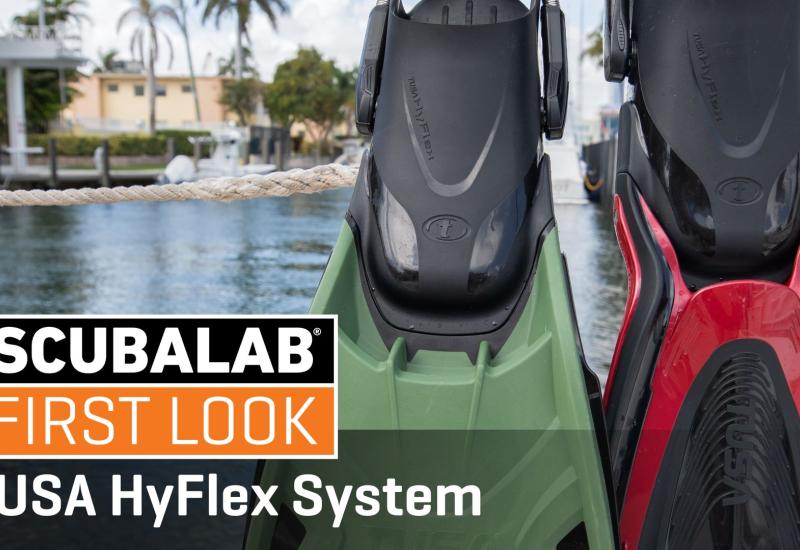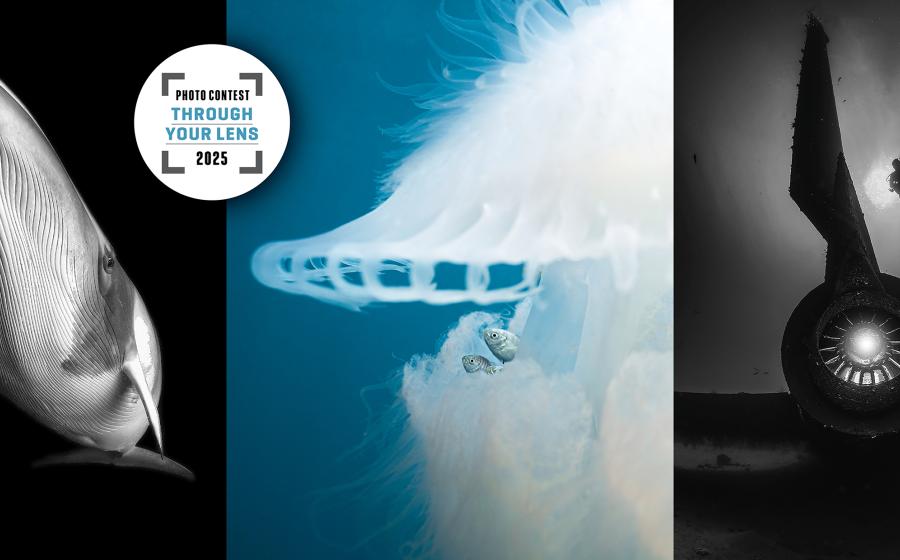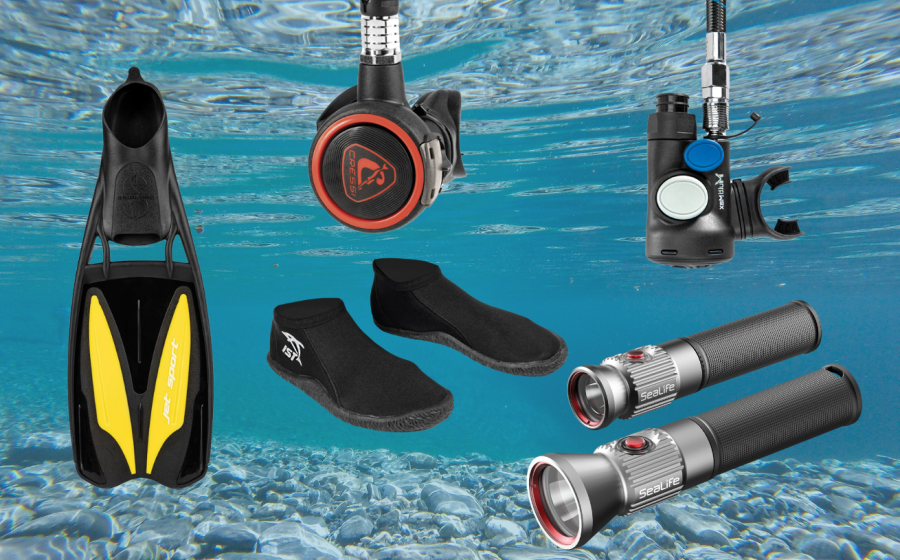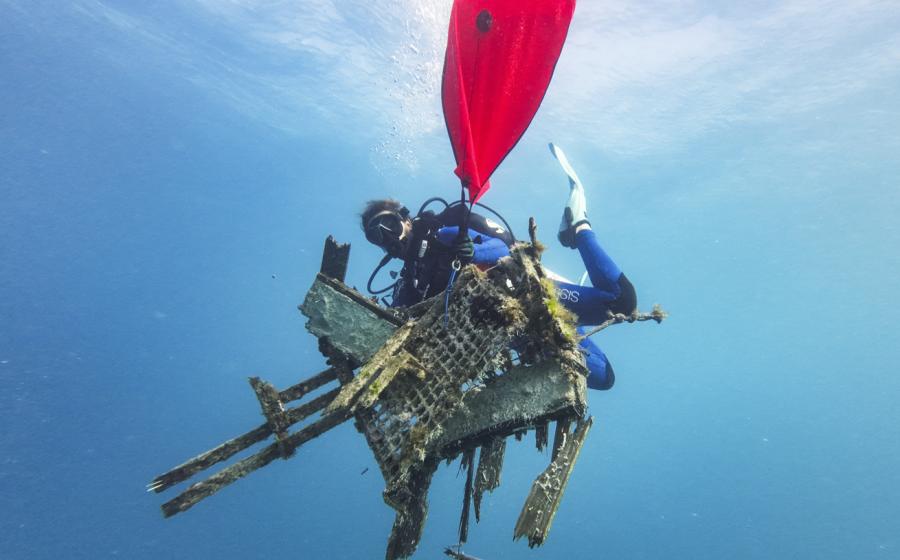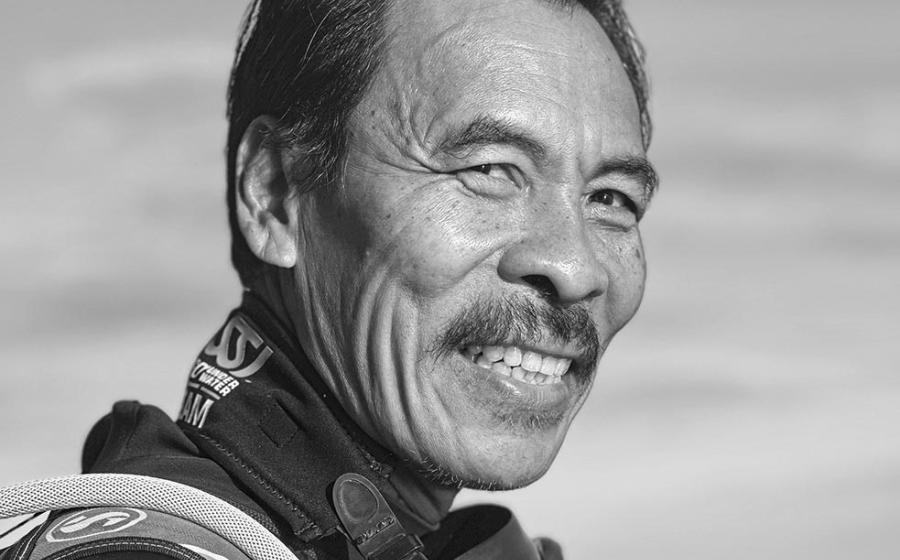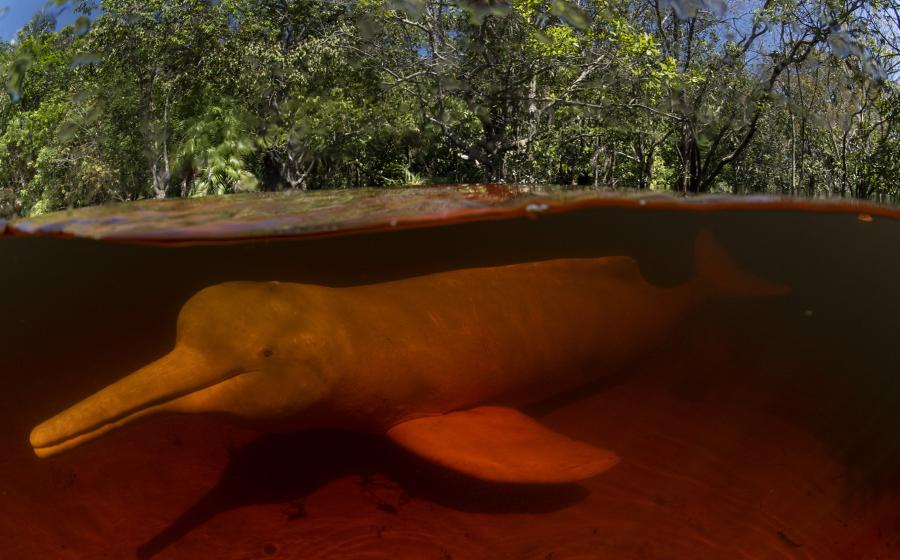Q&A with John Brumm

scuba diving news
John Brumm assisted in the creation of ScubaLab in 1992 with Jon Hardy, and assumed the role of ScubaLab Director in 2001. After a brief absence, Brumm is returning to the role, effective May 1.
Brumm was certified in 1981 as an NASDS diver. He founded Pacific Diver magazine in the late 1980s and served as its editor until 1992, when he became West Coast Editor for_ Scuba Diving_ magazine. We asked him about ScubaLab and the significance of gear testing to the dive industry.
Bottom Time: Why is it significant/important that ScubaLab test dive gear?
**John Brumm: **Because here at ScubaLab, being active divers ourselves, we happen to feel that good-breathing regs, and BCs that are stable at depth, and fins that will get you through a current without shredding your leg muscles, and dive computers that are easy to use and easy to understand, are all pretty darn important.
Scuba diving’s a great sport, it’s a heck lot of fun, but when we giant-stride into that ocean out there, we’re entering an inherently hostile environment. Our comfort, our safety, and the degree to which we enjoy ourselves while at depth is heavily dependent on the gear we’ve strapped to ourselves. Remember, we’re talking “life support equipment” here.
Having said that, it’s difficult for the average sport diver who’s interested in buying, say, a new back-buoyancy weight-integrated BC, to collect a half-dozen or so different models that he or she can get wet to check out the various valve systems, try the weight ditch systems, and see how stable they each are at depth. In other words, try before they buy. That’s where ScubaLab comes in.
ScubaLab does what scuba divers would do if they could. ScubaLab exists to help divers become informed consumers of dive gear. Nobody devotes as much manpower, spends as much money, or invests as much time to provide objective and practical information on dive gear as ScubaLab. ScubaLab gear reviews are designed to find out exactly what a particular piece of gear is supposed to do, and how well it does its job. Everything ScubaLab does flows from this.
BT: You are not new to ScubaLab. Before leaving for a year, you were the director of ScubaLab from 2001 until 2010. What do you consider your proudest accomplishment as ScubaLab's director?
**JB: **Big picture, I was proud to be able to step in to keep the system going when ScubaLab founder Jon Hardy died unexpectedly. Jon Hardy laid the groundwork for dive gear testing, he set the bar, and I was honored to have been able to carry on in his footsteps and take ScubaLab to the next level. On a more micro level, I’m proud of the work ScubaLab does when I see changes in dive gear design and improvements in performance that often correspond to ScubaLab tests and gear reviews.
BT: Why, when and how did you get certified?
**JB: **Back in the summer of ’81, while doing a leisurely circumnavigation of Catalina Island on the sailboat I owned at the time, I pulled into Avalon for a short layover. It was a beautiful day, so I decided to do some snorkeling at the Casino Point underwater park. The water was crystal clear and as I kicked along the surface I could see a group of divers sitting on the bottom maybe 50 feet down, engaged in a scuba class. I tried to free-dive down to see them, but couldn’t get that deep, and of course I couldn’t stay anyway. It looked like they were having so much fun, and they looked so comfortable just hanging out under water, that right then and there I knew I wanted to do what those divers were doing. Two months later I was certified.
BT: What's your favorite type of diving?
**JB: **I don’t really have a favorite type of diving. Warm water, cold water, reef diving, kelp diving, wreck diving, oil-rig diving, blue-water diving, it’s all good. I just like being under water. I like the quiet, the serenity. I enjoy just cruising around, and sometimes I’ll just find a rock and sit on it and watch the underwater world go by.
BT: When you're not testing gear, what do you like to do?
**JB: **I like to sail. I’ve lived on a number of sailboats over the years and have had the opportunity to do some extensive cruising in the waters of California and Mexico. I also like to explore America’s back roads on my motorcycle.
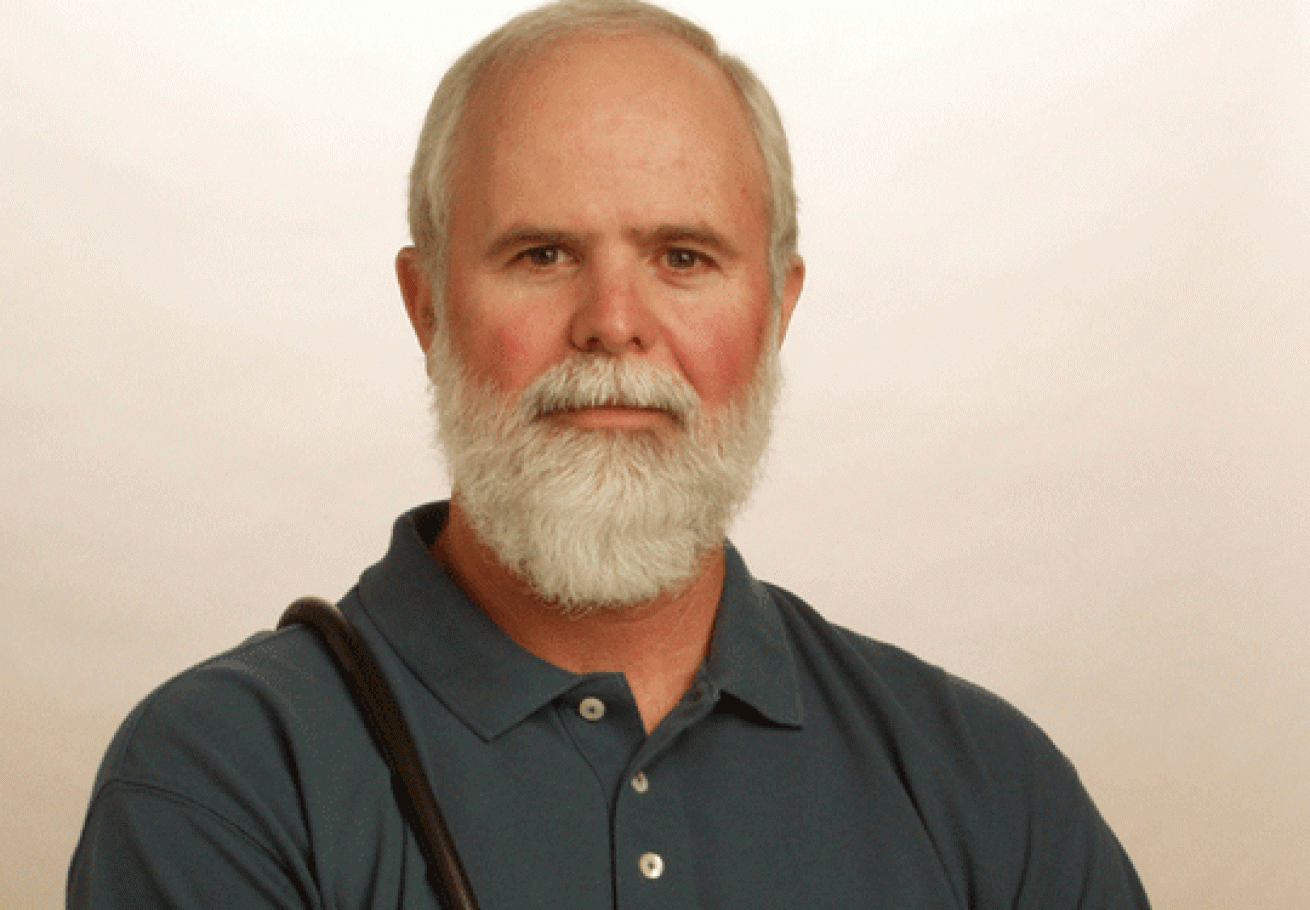
John Brumm assisted in the creation of ScubaLab in 1992 with Jon Hardy, and assumed the role of ScubaLab Director in 2001. After a brief absence, Brumm is returning to the role, effective May 1.
Brumm was certified in 1981 as an NASDS diver. He founded Pacific Diver magazine in the late 1980s and served as its editor until 1992, when he became West Coast Editor for_ Scuba Diving_ magazine. We asked him about ScubaLab and the significance of gear testing to the dive industry.
Bottom Time: Why is it significant/important that ScubaLab test dive gear?
**John Brumm: **Because here at ScubaLab, being active divers ourselves, we happen to feel that good-breathing regs, and BCs that are stable at depth, and fins that will get you through a current without shredding your leg muscles, and dive computers that are easy to use and easy to understand, are all pretty darn important.
Scuba diving’s a great sport, it’s a heck lot of fun, but when we giant-stride into that ocean out there, we’re entering an inherently hostile environment. Our comfort, our safety, and the degree to which we enjoy ourselves while at depth is heavily dependent on the gear we’ve strapped to ourselves. Remember, we’re talking “life support equipment” here.
Having said that, it’s difficult for the average sport diver who’s interested in buying, say, a new back-buoyancy weight-integrated BC, to collect a half-dozen or so different models that he or she can get wet to check out the various valve systems, try the weight ditch systems, and see how stable they each are at depth. In other words, try before they buy. That’s where ScubaLab comes in.
ScubaLab does what scuba divers would do if they could. ScubaLab exists to help divers become informed consumers of dive gear. Nobody devotes as much manpower, spends as much money, or invests as much time to provide objective and practical information on dive gear as ScubaLab. ScubaLab gear reviews are designed to find out exactly what a particular piece of gear is supposed to do, and how well it does its job. Everything ScubaLab does flows from this.
BT: You are not new to ScubaLab. Before leaving for a year, you were the director of ScubaLab from 2001 until 2010. What do you consider your proudest accomplishment as ScubaLab's director?
**JB: **Big picture, I was proud to be able to step in to keep the system going when ScubaLab founder Jon Hardy died unexpectedly. Jon Hardy laid the groundwork for dive gear testing, he set the bar, and I was honored to have been able to carry on in his footsteps and take ScubaLab to the next level. On a more micro level, I’m proud of the work ScubaLab does when I see changes in dive gear design and improvements in performance that often correspond to ScubaLab tests and gear reviews.
BT: Why, when and how did you get certified?
**JB: **Back in the summer of ’81, while doing a leisurely circumnavigation of Catalina Island on the sailboat I owned at the time, I pulled into Avalon for a short layover. It was a beautiful day, so I decided to do some snorkeling at the Casino Point underwater park. The water was crystal clear and as I kicked along the surface I could see a group of divers sitting on the bottom maybe 50 feet down, engaged in a scuba class. I tried to free-dive down to see them, but couldn’t get that deep, and of course I couldn’t stay anyway. It looked like they were having so much fun, and they looked so comfortable just hanging out under water, that right then and there I knew I wanted to do what those divers were doing. Two months later I was certified.
BT: What's your favorite type of diving?
**JB: **I don’t really have a favorite type of diving. Warm water, cold water, reef diving, kelp diving, wreck diving, oil-rig diving, blue-water diving, it’s all good. I just like being under water. I like the quiet, the serenity. I enjoy just cruising around, and sometimes I’ll just find a rock and sit on it and watch the underwater world go by.
BT: When you're not testing gear, what do you like to do?
**JB: **I like to sail. I’ve lived on a number of sailboats over the years and have had the opportunity to do some extensive cruising in the waters of California and Mexico. I also like to explore America’s back roads on my motorcycle.


